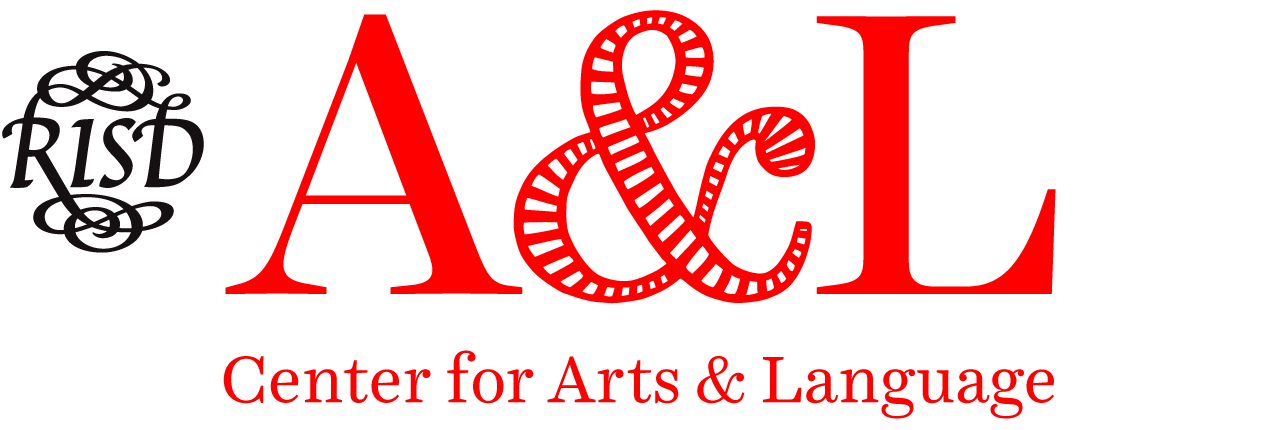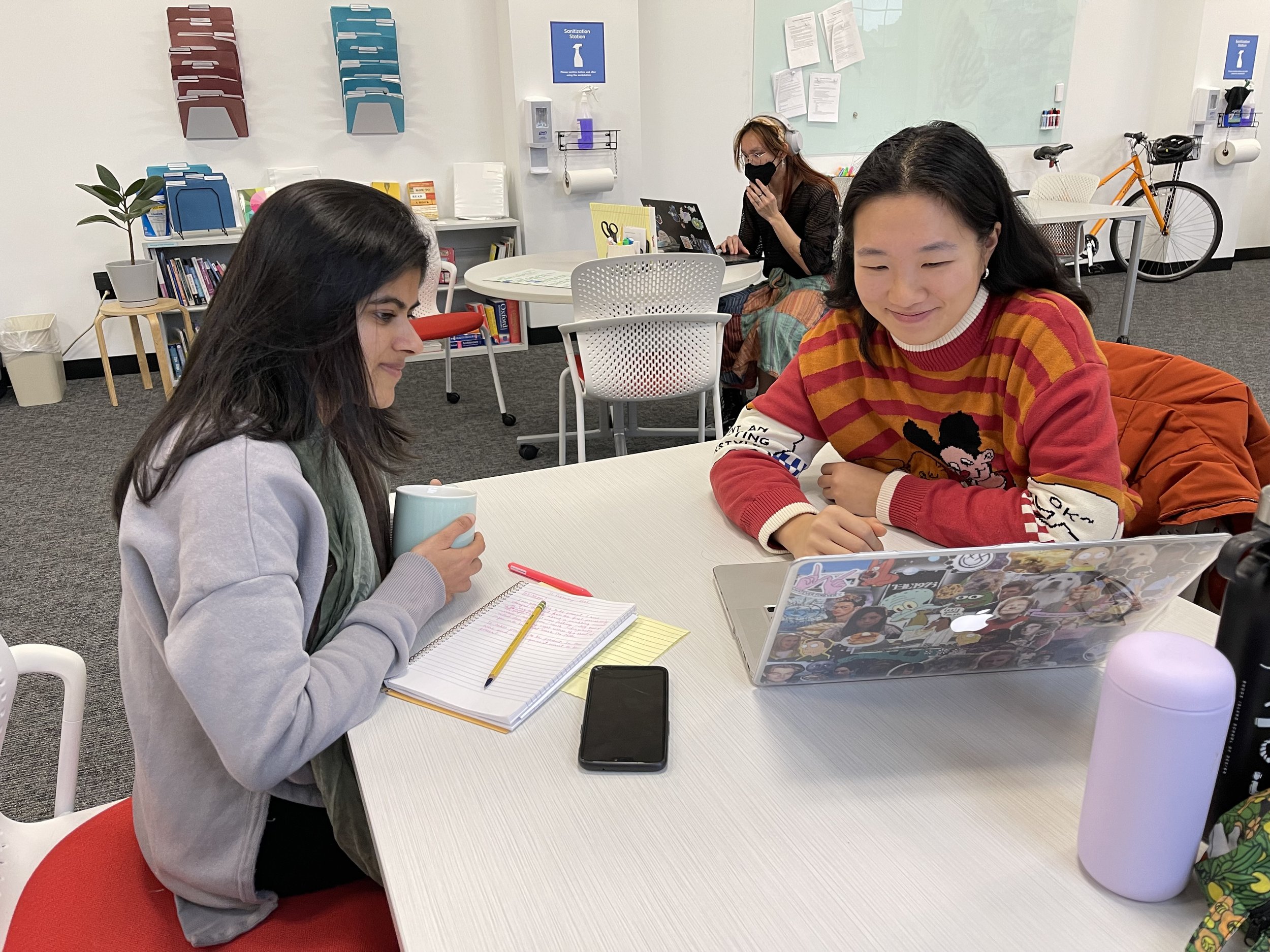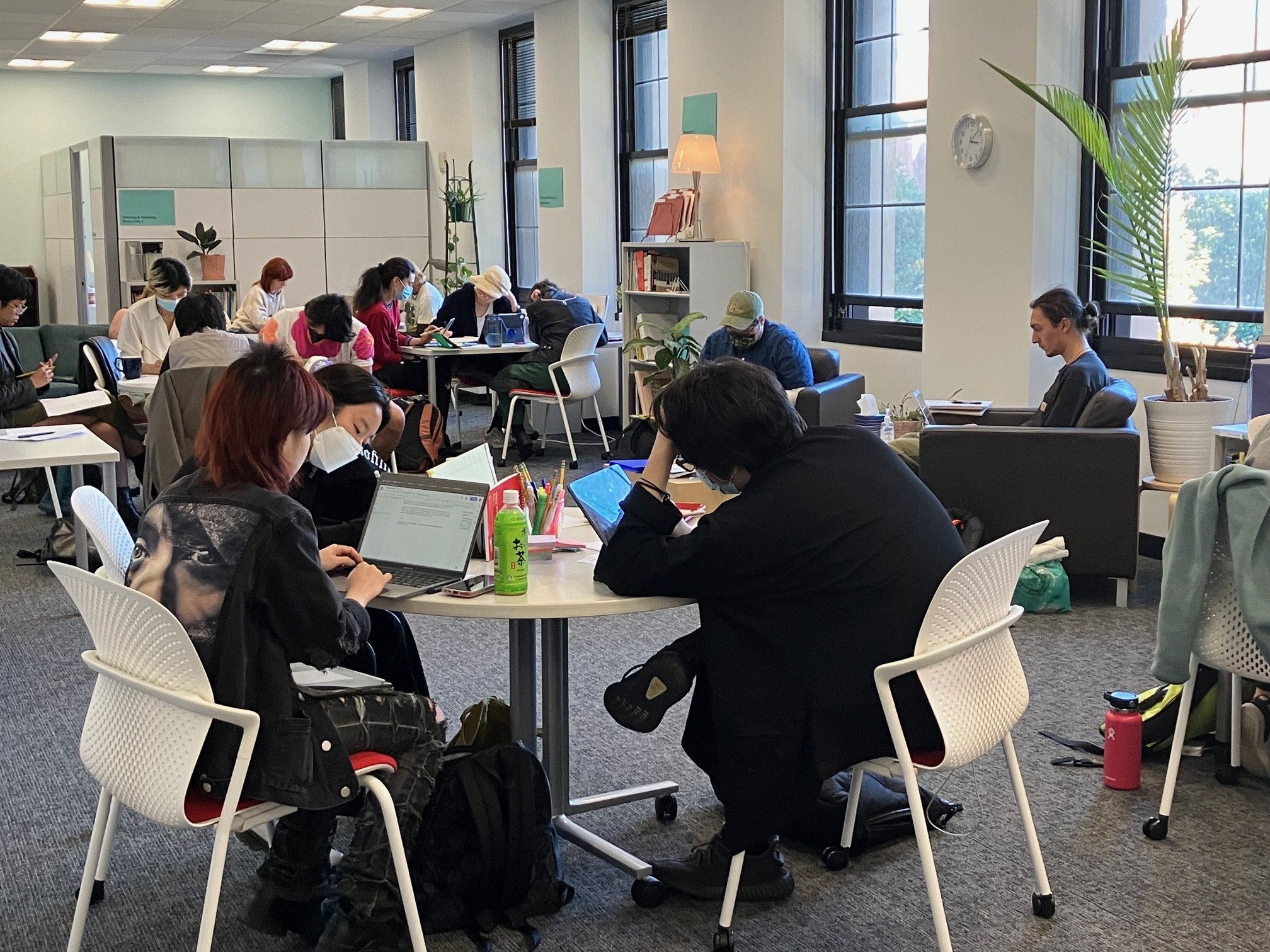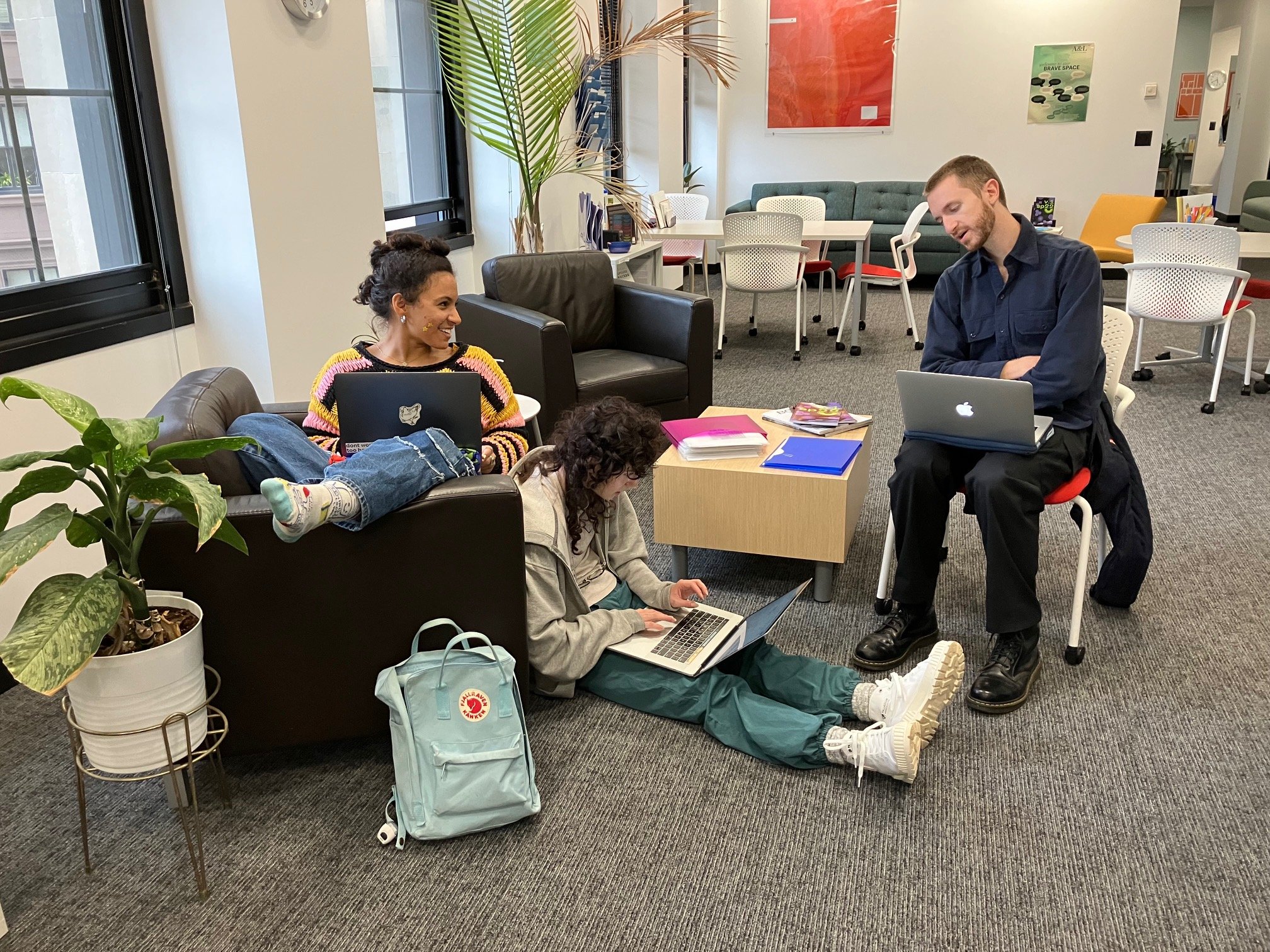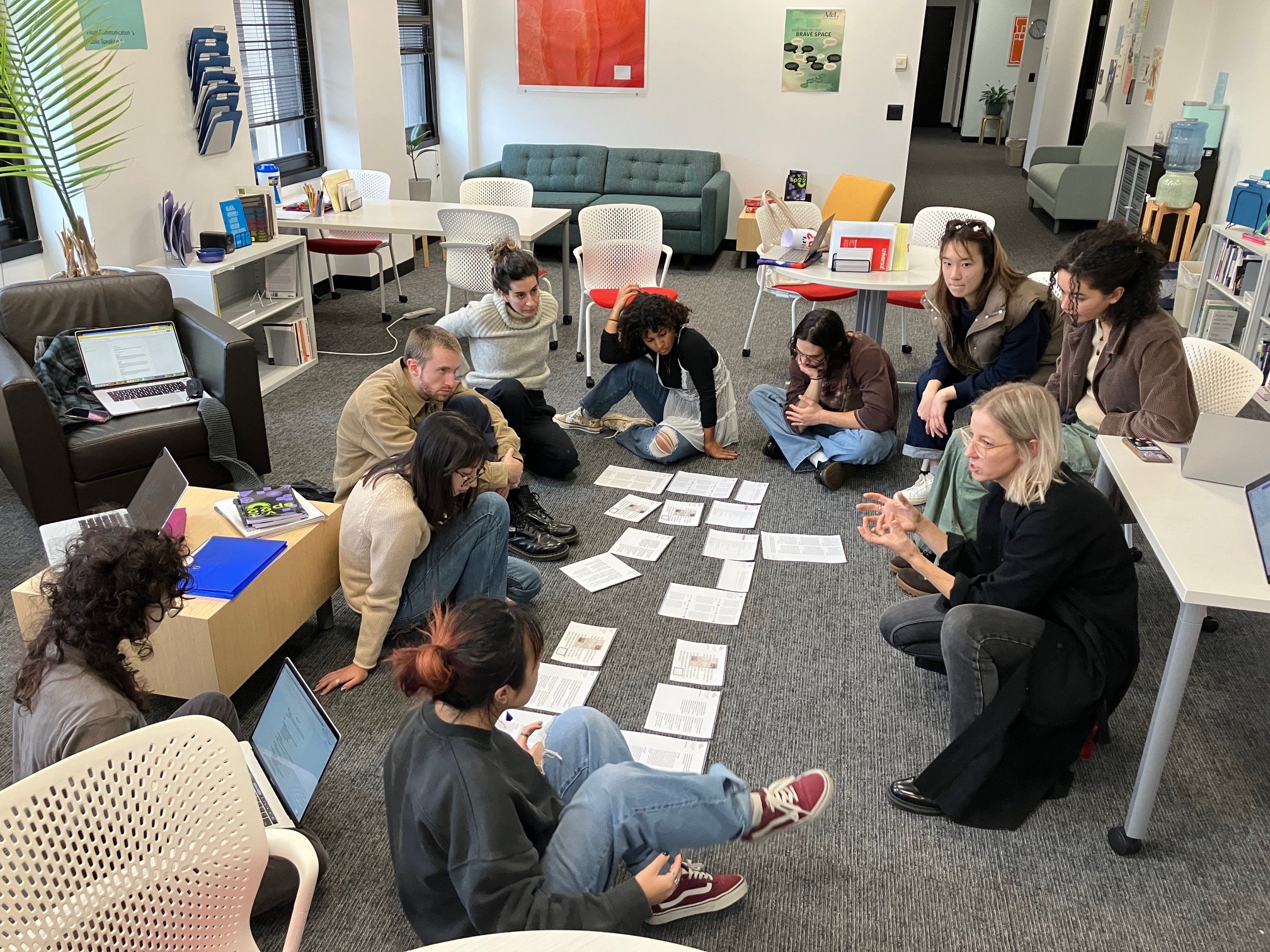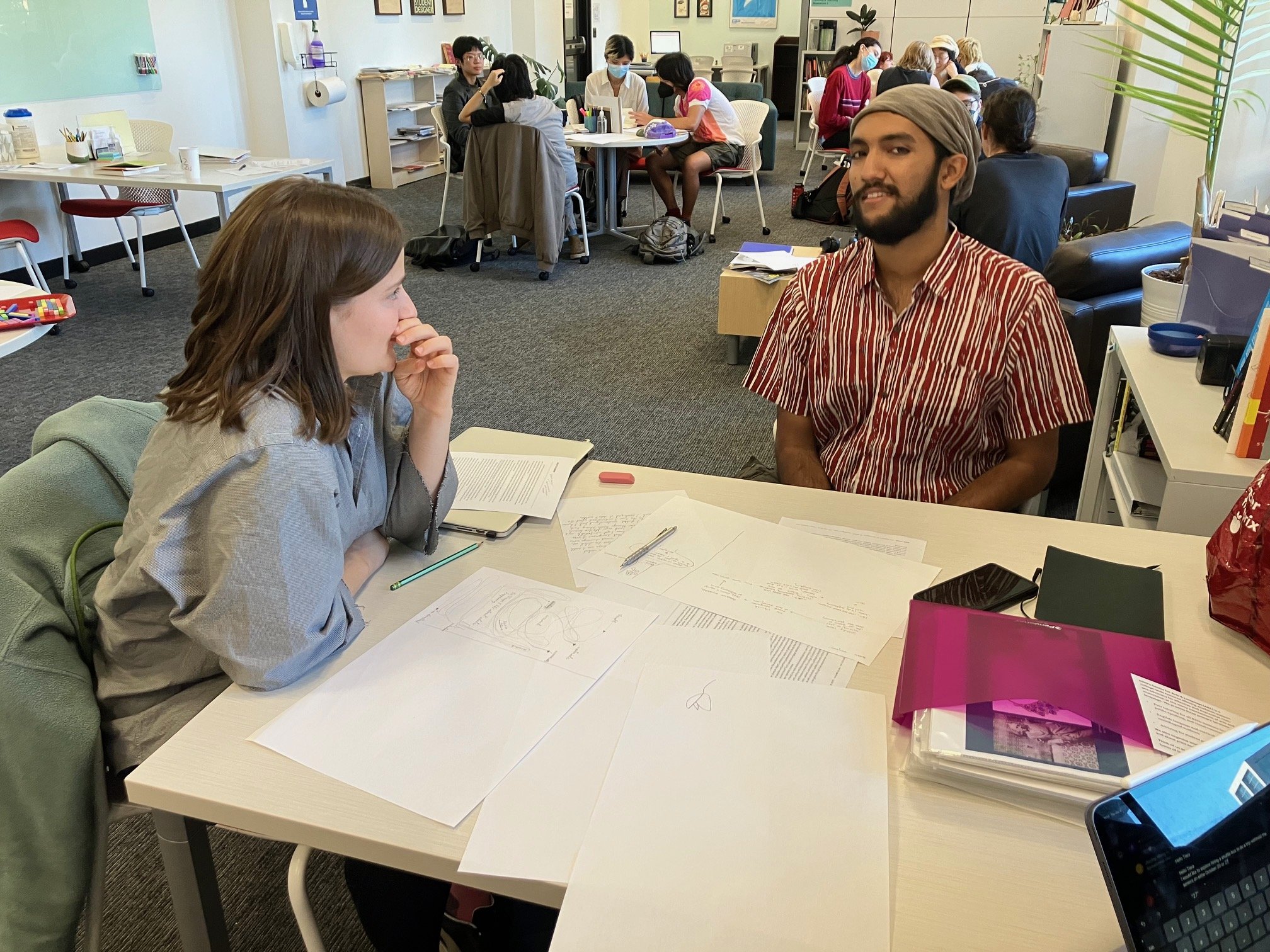Our Mission
The Center for Arts & Language (A&L) fortifies and amplifies artists’ and designers’ voices at RISD and in the world. We believe that expression through words as well as work is empowering and edifying, enabling artists and designers to tell their own stories and make vivid contributions to scholarly and public discourse. We understand and honor language as a representation of diverse identities, experiences, and beliefs.
Our Work
We offer academic support and advocacy for effective and expressive communication at the many intersections of arts and language. We are a multiliteracy center. In composition studies, the ability to interpret and create various and hybrid texts is known as “multimodal literacy” or “multiliteracy.” Multiliterate communication is central to a RISD education and to everyday work and life. We strive to help the RISD community navigate the spectrum of communication modes — written, vocal, and visual; digital and print; for an audience of one or many; across languages and discourse communities — with tools, consciousness, and confidence.
Our work is focused in three primary areas:
– Peer tutoring for all RISD students in writing, public speaking, and visual communication for academic, creative, professional, and personal purposes.
– English language support and academic mentoring for multilingual students
– Advising and infrastructure for student publications (see v.1 at volume-1.org)
In addition to these core services, we provide workshops, consult with RISD faculty on all of the above, research and produce print and online resources, and program lectures and events.
Our Values
We are student-centered. As advocates for students’ linguistic efficacy, we are asset-oriented, drawing on students’ existing strengths and helping to cultivate new ones. As advocates for students’ right to their own voices, we recognize that communication is inherently and deeply connected to identity — the languages, cultures, communities, educational backgrounds, learning styles, abilities, and experiences that shape who we are and how we relate to others — and so strive to honor individuality and multiplicity in communication styles. We incorporate flexible, individualized, verbal, visual, and kinesthetic methods into our work.
We are committed to self-expression, listening, and dialogue. Being able to verbalize and validate complicated ideas supports understanding oneself, feeling understood, and engaging in scholarship, professional and public address, and activism. We strive to help students develop the awareness, skills, and confidence they need to express themselves authentically and effectively. We understand communication as discursive, social, and change-making; we listen with open ears and minds, value different perspectives, and approach difficult topics with a consciousness of our own and others’ internal biases.
We draw on progressive theories and methods in literacy education. Students often seek our services to gain membership to discourse communities of Western academic writing and standard English language proficiency. We foster self-awareness of and access to academic expectations and conventions. We also understand the ways in which academia in general and writing centers in particular have perpetuated Western scholarly rhetoric and monolingualism. Through approaches like code-meshing and intercultural communication, we encourage making space for varied languages, vernaculars, styles, voices, and rhetoric.
We welcome communicative play. Given the long tradition of experimentation in artists’ and designers’ writings, we understand rhetorical play — subjectivity, fragmentation, poetics, for example — as an asset in some contexts. Where precision and persuasion are typical attributes of academic writing and speaking, ambiguity and complexity are typical attributes of art and design themselves, and thus often constructive of meaning when we communicate about and around art and design.
We strive to be an inclusive and accessible space for the whole RISD community. Our work and values guide us in making our center a place for students of any race, ethnicity, nationality, physical and/or cognitive ability, gender identity, sexual orientation, socioeconomic background, religion, and age to feel welcome. We believe that students of color, multilingual learners, first-gen students, students with learning differences, and those otherwise underrepresented at RISD, whom we serve in large numbers, deserve especially active inclusion and support.
We are always working to make our center, website, services, and resources non-discriminatory and non-disabling (see our SEI Action Plan for what we’re currently focused on). We invite community feedback at any time via the following channels:
Reach out to A&L Director Jen Liese (jliese@risd.edu).
Leave a note (signed or not) in our comments box by the door.
Report concerns about social equity and inclusion to: sei@risd.edu
Report concerns about accessibility to: disabilitysupportservices@risd.edu
Report a Title IX violation: https://titleix.risd.edu/
